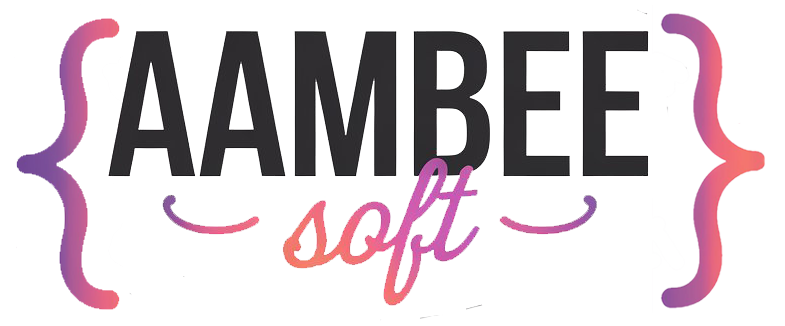The world of iOS app development is a dynamic landscape, constantly evolving with cutting-edge technologies. Choosing the right programming language is paramount for developers to build robust, high-performing, and user-friendly applications. This guide will delve into the best programming languages for iOS app development in 2025, empowering you with the knowledge to make informed decisions and embark on your development journey with confidence.

Swift: The Swift and Sure Choice
Swift, Apple’s own creation, reigns supreme as the primary language for iOS, macOS, watchOS, and tvOS development. Its modern syntax, safety features, and seamless integration with Apple’s ecosystem make it a top contender among the best programming languages for iOS app development, making it an ideal choice for both beginners and experienced developers.
Key Advantages:
- Easy to Learn: Swift boasts a clean and intuitive syntax, making it relatively easy to grasp for those new to programming.
- Fast and Powerful: Swift is designed for high performance, offering exceptional speed and efficiency.
- Safe and Secure: Built-in safety mechanisms help prevent common coding errors, enhancing the reliability and security of your applications.
- Open-Source: The open-source nature of Swift fosters a vibrant community and continuous improvement.
Use Cases:
- All types of iOS applications, from simple utilities to complex games and enterprise-level software.
Objective-C: The Legacy Continues
While Swift has taken center stage, Objective-C remains relevant and widely used within the Apple ecosystem. Many existing iOS applications are built with Objective-C, and it continues to be a valuable skill for developers working on legacy projects or those seeking to maintain compatibility with older systems.
Key Advantages:
- Mature and Stable: Objective-C has a long history and a proven track record in iOS development.
- Extensive Libraries and Frameworks: A vast collection of libraries and frameworks provides developers with a strong foundation for building robust applications using the best programming languages for iOS app development.
Use Cases:
- Maintaining and updating existing Objective-C projects.
- Working on projects that require compatibility with older iOS versions.
C/C++: Powering Performance-Critical Applications
C and C++ offer unparalleled performance and flexibility, making them essential for developing high-performance applications that demand maximum control over system resources. While not always considered among the top best programming languages for iOS app development for most everyday tasks, they are crucial for game development, multimedia applications, and low-level system programming.
Key Advantages:
- Exceptional Performance: C and C++ are among the best programming languages for iOS app development when performance is paramount. They provide direct hardware access and offer unparalleled speed and efficiency.
- Versatility: These languages are widely used across various platforms and industries.
Use Cases:
- Game development, especially for graphically intensive games.
- Low-level system programming and driver development.
- Multimedia applications such as video and audio processing.
JavaScript (with React Native)
While JavaScript itself isn’t considered one of the best programming languages for iOS app development in the traditional sense of native iOS development, its role in cross-platform development cannot be ignored. With the help of frameworks like React Native, JavaScript enables developers to build applications that run seamlessly on both iOS and Android using a single codebase.
Key Advantages:
- Cross-Platform Development: Significantly reduces development time and costs by sharing a common codebase across multiple platforms.
- Large Community and Ecosystem: A vast community and a rich ecosystem of libraries and tools provide extensive support and resources.
Use Cases:
- Building cross-platform applications with a focus on rapid development and code reusability.
Frequently Asked Questions:
Which language is easier to learn for beginners: Swift or Objective-C?
Swift is generally considered easier to learn for beginners due to its modern syntax and improved readability.
Is it possible to use multiple languages in a single iOS project?
Yes, it’s possible to use a combination of languages within a single project. For example, you might use Swift for the majority of your code and incorporate Objective-C for specific components or to interact with existing libraries.
What are the future prospects of Swift?
Swift’s future looks bright. Apple continues to invest heavily in its development, and it is rapidly gaining popularity among developers worldwide.
Key Considerations When Choosing a Language:
- Project Requirements: Carefully analyze the specific requirements of your project. Consider factors such as performance needs, development timeline, budget, and the need for cross-platform compatibility.
- Team Expertise: Evaluate the existing skills and experience within your development team. Choose a language that aligns with their expertise and allows them to be most productive.
- Long-Term Goals: Consider the long-term maintenance and scalability of your application. Choose a language with a strong community and active development to ensure ongoing support and future-proofing. By carefully considering these factors, you can select the best programming languages for iOS app development that align with your project’s unique needs and set your development team up for success.
Unlocking Success with the Right Programming Language
Selecting the appropriate programming language is a critical step in the best programming languages for iOS app development process. By carefully evaluating your project requirements, considering your team’s expertise, and staying informed about the latest trends, you can make an informed decision that sets your project on the path to success. Embrace the power of Swift, explore the versatility of Objective-C, harness the performance of C/C++, or leverage the cross-platform capabilities of JavaScript with React Native. The future of iOS app development is bright, and the right language will be your key to unlocking its full potential.






